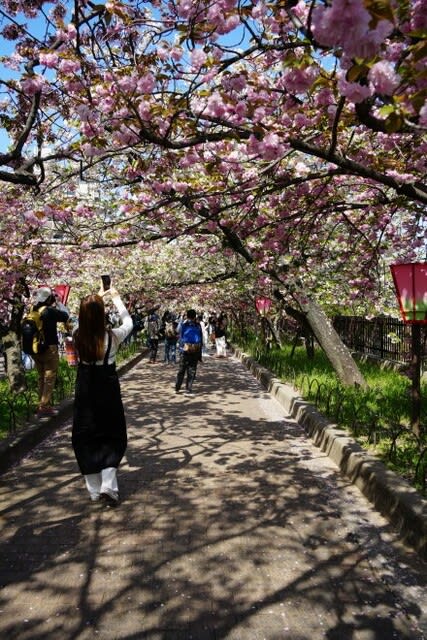Das Folgende stammt aus einem Artikel des ehemaligen Professors der Josai-Universität, Seishiro Sugihara, der im heutigen Sankei Shimbun unter dem Titel „The Mystery of Big Shot, Professor der Universität Tokio“ erschien.
Es ist ein Muss, nicht nur für die Japaner, sondern für Menschen auf der ganzen Welt.
Eine unbequeme Geschichte der Verfassungstheorie
Verfassungsrechtler, die argumentieren, dass die Selbstverteidigungskräfte verfassungswidrig sind, haben in letzter Zeit den Atem angehalten, vielleicht wegen der Invasion der Ukraine und der Bedrohung durch China. Dennoch hat sich in der Debatte um die Verdopplung der Verteidigungsausgaben und der Fähigkeit zum Angriff auf feindliche Stützpunkte (Gegenangriffsfähigkeit) die Opposition erneut erhoben, wobei sie Artikel 9 der Verfassung als Schutzschild benutzt.
Japan ist, wie üblich, nicht vom Joch des Artikels 9 befreit worden.
Ist es jedoch richtig anzuerkennen, dass die Verfassung auf den Krieg verzichtet und den Verzicht auf militärische Kräfte festschreibt?
In Artikel 9 Absatz 1 heißt es: „Japan wünscht aufrichtig den internationalen Frieden und verzichtet für immer auf Krieg als Ausübung der nationalen Souveränität und die Androhung oder Anwendung von Gewalt zur Beilegung internationaler Streitigkeiten.“
Auch die Deutung, dass auf den Krieg „als Mittel der Selbstverteidigung“ nicht verzichtet wird, ist logisch. Die Auslegung der Regierung erlaubt die Ausübung des Rechts auf Selbstverteidigung.
Dies wird jedoch nicht als "Krieg" bezeichnet.
Die in Artikel 9 Absatz 2 festgelegte Nichterhaltung militärischer Streitkräfte sieht auch vor, dass „zur Erreichung der im vorstehenden Absatz genannten Ziele keine Armee, Marine, Luftwaffe oder andere militärische Streitmacht aufrechterhalten werden darf“. daher ist es logisch und akademisch, dies so zu interpretieren, dass es den Besitz militärischer Streitkräfte zum Zwecke der Selbstverteidigung erlaubt, was sich von den „Zielen, die im vorstehenden Absatz dargelegt sind, unterscheidet.
Wenn wir den Inkraftsetzungsprozess der Verfassung verfolgen, können wir eine gewisse Logik dieser Interpretation erkennen.
Tatsächlich war im ursprünglichen Verfassungsentwurf der Regierung, der kurz nach dem Krieg von den Besatzungsmächten auferlegt wurde, der Satzteil „um die im vorangehenden Absatz dargelegten Zwecke zu erreichen“ nicht in Absatz 2 enthalten. Stattdessen konnte er lauten Artikel, der besagt, dass die Streitkräfte nicht unter allen Bedingungen besessen werden dürfen.
Der Änderungsantrag des Repräsentantenhauses fügte jedoch den Satz "um die im vorstehenden Absatz dargelegten Zwecke zu erreichen.
Diese Änderung erfolgte auf Vorschlag von Hitoshi Ashida, dem Vorsitzenden des Unterausschusses, der die Verfassung im Repräsentantenhaus beriet. Es heißt „Ashida-Änderung“. Durch die Besatzungsmächte zwang die Fernost-Kommission Japan dazu, den Satz „Der Premierminister und andere Staatsminister sollen Zivilisten sein.
Wenn Japan unter der neuen Verfassung keine Armee behält, wird es kein Militärpersonal geben, mit anderen Worten, niemanden außer Zivilisten, daher ist diese Klausel im Wesentlichen überflüssig.
Die Tatsache, dass sie sich die Mühe gemacht haben, diese Klausel in die neue Verfassung aufzunehmen, bedeutet, dass aus der Sicht derer, die die neue Verfassung auferlegten, Artikel 9 so ausgelegt werden könnte, dass er die Beibehaltung einer Armee zur Selbstverteidigung erlaubt.
Die derzeitige japanische Regierung folgt nicht dieser Auslegung der Verfassung (der Ashida-Änderung), sondern interpretiert Artikel 9 so, dass die Selbstverteidigungskräfte zu einer verfassungsmäßigen Einheit werden.
Obwohl mehr als ein paar andere Länder außer Japan Verfassungen haben, die den Krieg aufgeben, ist es international gesunder Menschenverstand, dass sie immer noch Armeen haben.
Aus irgendeinem Grund besteht die japanische Verfassungstheorie jedoch auf einer fundamentalistischen Abkehr vom Krieg und dem Nichterhalt von Streitkräften.
Herr Hideaki Shinoda, ein internationaler Politikwissenschaftler, kritisiert dies in seinem Buch „The Disease of Constitutional Theory“ (Shincho Shinsho) scharf.
Das Buch nennt die Verfassungstheorie aufeinanderfolgender Generationen von Verfassungswissenschaftlern an der juristischen Fakultät der Universität Tokio eine „Krankheit der Verfassungstheorie“ und kritisiert sie als „Galápagos-Syndrom“, weit entfernt vom internationalen gesunden Menschenverstand.
Angesichts der aktuellen Situation in Japan, wo die Verfassungsinterpretation der juristischen Fakultät der Universität Tokio dominiert, kritisiert das Buch effektiv die japanische Verfassungstheorie.
Der Imperator ist ein „roboterhaftes Wesen“
Warum ist die japanische Verfassungstheorie zum Galápagos-Syndrom geworden?
Ich bin kein Verfassungswissenschaftler, aber ich kenne einen Teil des Grundes, weil ich die moderne und zeitgenössische Geschichte Japans studiert habe.
Kurz nach dem Krieg hat sich Toshiyoshi Miyazawa, ein berühmter Professor für Verfassungstheorie an der Juristischen Fakultät der Universität Tokio (damals noch Tokyo Imperial University genannt), den Besatzungsmächten und den Vereinigten Staaten zu seiner Selbsterhaltung eingeschmeichelt und förderte eine Interpretation, die die Grundsätze der auferlegten Verfassung aufrechterhielt.
Es war so unrealistisch, dass der Rest der Welt die japanische Verfassungstheorie hinter sich ließ.
Miyazawa war eine sogenannte „große Regierung“.nt-patronisierter Gelehrter", und unmittelbar nach der Kriegsniederlage war er führendes Mitglied des Untersuchungsausschusses für konstitutionelle Probleme der Regierung, wo er argumentierte, dass selbst wenn die Meiji-Verfassung überarbeitet werden sollte, sie nicht so drastisch geändert werden sollte wie die spätere japanische Verfassung.
Als er jedoch am 13. Februar 1946 erfuhr, dass die Besatzer die japanische Regierung gezwungen hatten, einen Verfassungsrevisionsplan zu verabschieden, der als „MacArthur Draft“ bekannt war, änderte er seine Haltung.
Der MacArthur-Entwurf beseitigte gründlich jeden Spielraum für politische Macht in Bezug auf den Kaiser, stellte klar fest, dass der Kaiser eher ein "Symbol" als ein Staatsoberhaupt sei, und nahm fast alles in die aktuelle japanische Verfassung auf, einschließlich des Verzichts auf Krieg und der Nicht- Beibehaltung militärischer Kräfte. Miyazawa nutzte seine Position, um diesen streng vertraulichen Entwurf zu erhalten, und brachte ihn noch am selben Tag zu Shigeru Nanbara, dem damaligen Präsidenten der Universität Tokio.
Am nächsten Tag versammelten sich bedeutende Professoren der juristischen Fakultät der Universität Tokio. Innerhalb der Universität wurde ein "Forschungsausschuss für Verfassungsrecht" gebildet, und Miyazawa wurde zum Vorsitzenden ernannt.
Er wurde zum Fahnenträger für die Überarbeitung der Verfassung auf der Grundlage des MacArthur-Entwurfs.
Man kann nur vermuten, dass die Besatzer ihn diszipliniert haben, aber warum hat Miyazawa seine Einstellung so drastisch geändert?
Die Angst, sich den Unmut der Besatzungsmächte zuzuziehen oder aus öffentlichen Ämtern verdrängt zu werden, analysiert der Journalist Eiji Takao in seinem Buch „Dokument Imperial Household Law: Toshiyoshi Miyazawa and Ryoichi Takao“ (Gentosha) anhand einer Reihe akribisch recherchierter historische Dokumente.
Miyazawa stellte anschließend bei der Interpretation der neuen Verfassung Theorien auf, die den Besatzungsmächten und den USA in der unmittelbaren Nachkriegszeit treu blieben.
Er bezeichnete Japans Niederlage im Krieg als Revolution und interpretierte die Autorität des Kaisers sogar negativ, indem er ihn als „Roboterwesen“ bezeichnete.
Er interpretierte Artikel 9 auch so, dass Japan nicht einmal zur Selbstverteidigung Kriegsmacht haben könne.
Wie oben erwähnt, übertraf diese fundamentalistische Sichtweise sogar die Annahmen der Vereinigten Staaten. Dennoch wurzelte es in der juristischen Fakultät der Universität von Tokio und dominierte die Verfassungstheorie als Ganzes.
Wie von Miyazawa erkannt, sollten die Besatzer und die USA Japan in den frühen Stadien der Besatzung schwächen, um zu verhindern, dass Japan sich an den Siegermächten rächt.
Die Vereinigten Staaten änderten schließlich ihre Politik als Reaktion auf den Koreakrieg und andere Veränderungen in der internationalen Lage und gingen sogar so weit, Japan zur Aufrüstung aufzufordern. Allerdings konnte nur die Verfassungstheorie in Japan weiter Fuß fassen und von der kriegsfeindlichen, pazifistischen Linken unterstützt werden.
Auslegung von Artikel 9 durch „Kriegsgewinnler“.
Es ist natürlich eine Frage der akademischen Freiheit für Gelehrte, beliebige Theorien zu vertreten.
Wir möchten jedoch darauf hinweisen, dass Miyazawa durch seine Bekehrung als Gelehrter große Früchte geerntet hat.
Er entging nicht nur dem Amtsverbot, das die Besatzer verhängt hatten.
Viele Mitglieder des House of Peers verloren durch ihren Ausschluss aus öffentlichen Ämtern ihre Ämter. Dennoch wurde Miyazawa in das House of Peers gewählt, um ihren Platz einzunehmen, und selbst nachdem das House of Peers unter der neuen Verfassung abgeschafft wurde, behielt er seine hohe Position als führender Gelehrter.
Während viele Menschen in Japan die Qual der Niederlage im Krieg erlitten, gab es nicht wenige Menschen, insbesondere im Außenministerium, die ihre Niederlage nutzten, um Positionen zu gewinnen.
Ich nenne diese Leute "Kriegsgewinnler".
Es ist nichts dran.
Die japanische Verfassungstheorie ist zum Galápagos-Syndrom geworden, weil sie eine „Verfassungstheorie der Kriegsprofiteure“ bleibt, die von der Selbsterhaltung der Kriegsprofiteure ausging.
Obwohl die bisherige Forschung beträchtliches Licht auf den Prozess der Verabschiedung der japanischen Verfassung geworfen hat, ist diese Art von Geschichte der Öffentlichkeit überraschenderweise unbekannt.
Die Tatsache, dass die Auslegung der japanischen Verfassungstheorie ziemlich verzerrt ist, wurde während der Abe-Administration ziemlich bekannt, als die Debatte über die Auslegung von Artikel 9 bezüglich der teilweisen Anerkennung der Ausübung des Rechts auf kollektive Selbstverteidigung zu einem bedeutenden Thema wurde, aber die diskussion ist hier noch nicht stehengeblieben.
Obwohl die Verfassungsauslegung in einzelnen Gerichtsverfahren zu einem Thema geworden ist, gab es praktisch keine Versuche, als politische Frage zu diskutieren, welche Auslegung jedes Artikels richtig ist und welche von der richtigen Auslegung abweicht und ob falsche Auslegungen weit verbreitet sind.
Lassen Sie uns den 3. Mai, den Tag der Verfassung, der den 76. Jahrestag der Verabschiedung der japanischen Verfassung markiert, nutzen, um die Debatte neu zu beginnen.
Es würde der Verfassungsreform sicherlich Schwung verleihen.
Seishiro Sugihara wurde 1941 geboren. Absolvent der ter Universität Tokio, Fakultät für Erziehungswissenschaften, und absolvierte einen Master-Abschluss an derselben Universität – einen Master-Abschluss in Pädagogik der Universität Tokio.
Er war Professor an der Josai University und der Musashino Women's University (jetzt Musashino University).
Er ist auch in die moderne und zeitgenössische japanische Geschichtsforschung involviert und diente als Präsident der Association for Creating New History Textbooks.
Er ist derzeit Präsident des International Institute for Historical Review.
Zu seinen Veröffentlichungen gehören „Basic Theory of Law“ (Kyodo Shuppan) und „A Study of Japanese Diplomacy after the Outbreak of War between Japan and the United States“ (Aki Shobo).
Er war Co-Autor von „The Disease of Shigeru Yoshida“ und „Sequel: The Disease of Shigeru Yoshida“ (beide von Jiyu-sha veröffentlicht), in denen er auf die Existenz „besiegter Kriegsprofiteure“ hinwies.

4. April 2023 in Kyoto

















